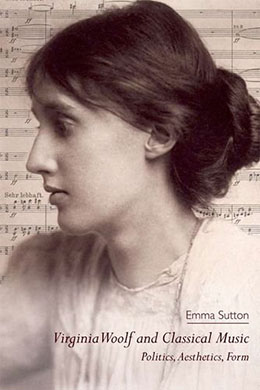Woolf and Wagner
 Music played a vital role in the work of Virginia Woolf, according to new research.
Music played a vital role in the work of Virginia Woolf, according to new research.
In a new book published by an academic at the University of St Andrews, the significance of music in the life of the famous writer has been outlined for the first time.
Amongst the discoveries made by author Dr Emma Sutton is Woolf’s membership of the National Gramophonic Society, founded in 1923 by Compton Mackenzie.
Dr Sutton commented, “In 1940, Virginia Woolf famously observed that ‘I always think of my books as music before I write them’, but until now no one has fully demonstrated the depths of her passion and knowledge on the subject.”
The newly-released text Virginia Woolf and Classical Music: Politics, Aesthetics, Form is the first to show the importance of music to the writer’s literary techniques and politics.
In her new book, Dr Emma Sutton demonstrates Woolf’s ‘commanding knowledge’ of a vast repertoire of music, acquired through almost daily attendance at operas and concerts as a young woman and through daily listening to recorded music as an adult.
Dr Sutton continued, “Woolf’s feminism and pacifism, her socialism and philo-Semitism, were all shaped by and intersected with her passionate love of music.”
In addition to exploring Woolf’s knowledge of works by composers including Bach, Beethoven, Mozart and Wagner, Dr Sutton reveals for the first time Woolf’s familiarity with contemporary repertoire.
The book also documents the author’s previously unknown membership of the National Gramophonic Society that recorded avant-garde music and exclusive first-ever recordings by then relatively little-known composers such as Vivaldi and Purcell.
Dr Sutton said her discoveries have opened up new ways of thinking about Woolf’s work.
She explained, “Woolf was fascinated by the relationship between music and politics: her experiences at concerts and opera houses profoundly shaped her attitudes towards education, social class, national identity, gender, sexuality, ethnicity and anti-Semitism.
“Woolf was, for example, acutely aware of the unequal opportunities available to women composers and musicians – excluded from almost all professional orchestras in the period – and her sense of these injustices was sharpened by her intimate friendship with the British composer and militant suffragette Ethel Smyth.
“Woolf was also repulsed by the use of music for patriotic or xenophobic purposes. Her fiction resists the intensely patriotic representations of English music during the First World War, when public performances of German music were banned and English folk song promoted as the glue that would unify English society and heal shell-shocked veterans.
“Her later fiction similarly uses music to express her philo-Semitic, pacifist vision, criticising the adoption of Wagner’s operas for Nazi propaganda.”
In her new book, Dr Sutton also establishes that some of Woolf’s principal literary innovations derived from music: her ability to represent the highly articulate but unspoken thoughts of her characters was developed, says Dr Sutton, through Woolf’s study of orchestral ‘narration’ in Wagner’s operas.
She continued, “It’s long been assumed that music was the least important of the arts in Woolf’s work and that of the Bloomsbury group more widely, but this research demonstrates rather that Woolf’s lifelong, vibrant musical life was central to her Modernist experiments and her political vision.”
Emma Sutton is, with several colleagues from the School of English, a member of The Cambridge Edition of the Works of Virginia Woolf, and the book draws on a decade of research for that project.
ENDS
Note to Editors
Emma Sutton is available for interview: [email protected]
More information on the book Virginia Woolf and Classical Music.
Issued by the Press Office
Contact Gayle Cook, Senior Communications Manager on 01334 467227, [email protected]
Ref: Woolf and music 181013
Category Research